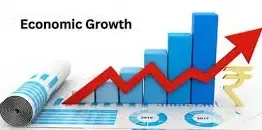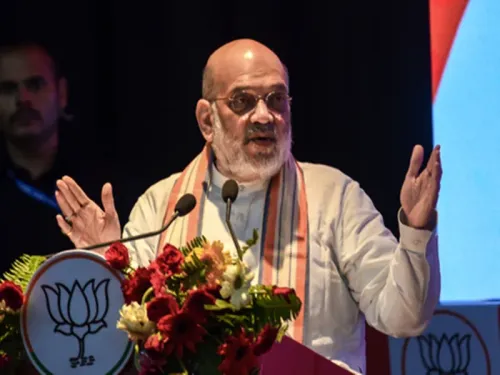Union Budget 2025-26 Focuses on Boosting Consumption for Economic Growth

Synopsis
Key Takeaways
- Focus on boosting overall consumption
- Tax incentives for the middle class
- Commitment to fiscal consolidation
- Capital expenditure set at Rs 11.21 lakh crore
- Transformative reforms across key sectors
New Delhi, Feb 2 (NationPress) The Union Budget 2025-26 is designed to enhance overall consumption, which is crucial for stimulating economic growth, according to a recent report.
Tax incentives targeted at the middle class aim to bolster household confidence. The ongoing capital expenditure (Capex) initiative will further elevate public Capex, thereby encouraging private investments.
Allocations are distributed across various sectors through policy and budgetary measures to ensure inclusive development. While emphasizing reforms, Finance Minister Nirmala Sitharaman remains dedicated to fiscal consolidation, establishing the fiscal deficit target at 4.4 percent of GDP for 2025-26 and adjusting the estimates for 2024-25 to 4.8 percent, as stated by Asit C Mehta Investment Intermediates Ltd.
The Budget continues to promote various reforms aimed at enhancing exports and domestic manufacturing. It paints an overall optimistic scenario to create job opportunities, revive consumption, and stimulate economic growth, the report highlights.
The Indian economy remains the fastest-growing among major global economies, presenting a unique chance over the next five years to achieve ‘Sabka Vikas’ by encouraging balanced and inclusive regional development.
The Union Budget 2025-26 reinforces the Government’s commitment to accelerating economic growth, ensuring inclusive development, stimulating private sector investment, uplifting household sentiment, and enhancing the spending capacity of India's emerging middle class.
Four essential sectors — Agriculture, MSMEs, Investment, and Exports — are expected to drive this developmental journey. A capital expenditure allocation of Rs 11.21 lakh crore (3.1 percent of GDP) has been designated for 2025-26 to support this momentum.
“This budget also lays the groundwork for transformative reforms across six key areas: Taxation, Power Sector, Urban Development, Mining, Financial Sector, and Regulatory Reforms,” the report noted.
Over the next five years, these reforms will enhance India's global competitiveness and promote sustainable growth, ultimately guiding the economy towards the vision of ‘Viksit Bharat,’ it added.
The Union Budget 2025-26 introduces extensive tax reforms aimed at simplifying compliance, promoting economic growth, and ensuring fiscal stability. The government remains committed to alleviating tax burdens on individuals and businesses, expanding the tax base, and establishing a progressive taxation framework.









